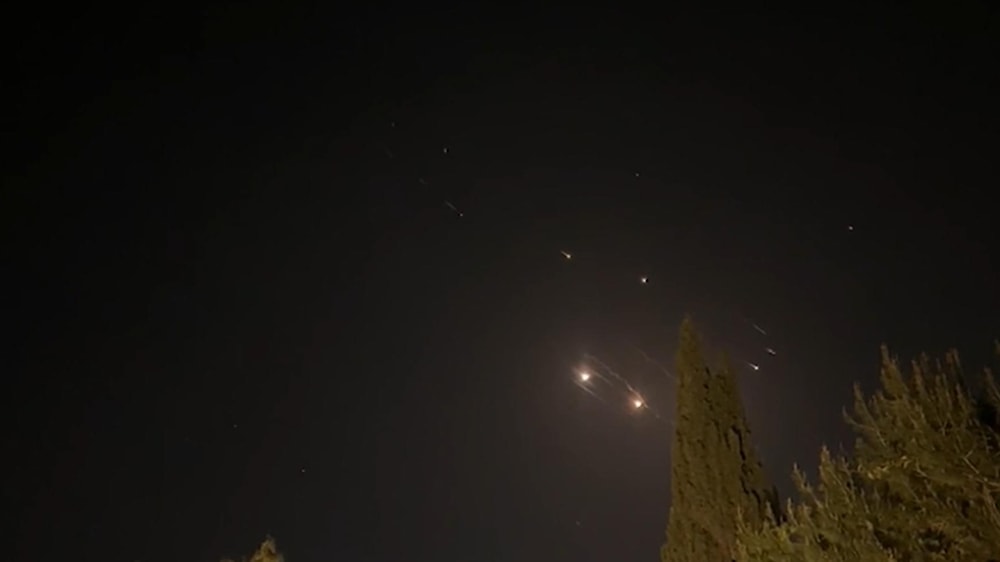No significant damage in Isfahan air base after Israeli attack: CNN
The American media reveals that SAR satellite images showed no ground craters or destroyed buildings near the air base.
-

Iranian air defense missiles engaging with aerial targets over Isfahan, Iran on Friday, April 19, 2024 (Social Media)
Exclusive satellite images provided by Umbra Space to CNN suggest that there is no significant damage at an air base following the reported Israeli attack early Friday.
No significant ground craters or visibly destroyed buildings are evident, the synthetic aperture radar (SAR) satellite images, which were taken around 10:20 am local time, showed.
Read more: US plays oblivious on Israeli attack on Iran, denies any involvement
SAR images - unlike normal satellite images - are generated using a satellite that emits radar beams capable of penetrating clouds, which is important as clouds are currently obstructing satellite imaging of the area. These radar beams bounce off objects on the ground and return to the satellite, forming the images.
More visual satellite imagery will be needed to look for burn marks around the facility, as these cannot be seen in SAR images.
Read more: IRGC launches 'unprecedented' retaliatory attack on 'Israel'
Citing news sources, Fars reported earlier that three explosions were heard near an army military base in the northeastern part of Isfahan, located in central Iran. The explosions were later said to be air defense systems activated in response to the sighting of a small suspicious object flying over the city.
Additionally, the Iranian outlet reported that the army's radar in the city may have been a target.
According to CNN, images indicate that the Iranian F-14 Tomcats, previously stationed at the air base, are currently not present. Further examination of archival satellite imagery revealed that these jets have been absent from the base for a considerable period.
With or without the US
The director of the Carnegie Middle East Center research foundation, Maya Yahya, told CNN's John Vause on Friday that for "Israel" to wage a full-scale war in the region, it would need substantial support from its allies, especially the US.
"Israel does not have the capacity for a long-term all-out war without external support. It would need the commitment from the United States to continue providing arms. It relies on the United States and other Western powers on a number of military fronts," she said.
Similarly, an op-ed published in The Telegraph on Friday said the Israeli "limited" aggression has emboldened Iran even more to carry out a larger strike against the occupation entity any time in the future.
Read more: 10 countries failed in intercepting Iranian drones, missiles: Raisi
Commenting on the attack, the author said that the Israeli attack on Iran which was supposed to be an attack to restore deterrence turned out to be quite the opposite; it further proved to the Islamic Republic that the United States, "Israel", and their allies are "alien to this concept."
He also accused the entity's international allies of "muting" its attack and trying to contain it by attaching "limited" to it in fear of escalation, pointing out that this "would hardly strike fear in the heart" of the Islamic Republic. Additionally, by not publicly claiming responsibility, "Israel" stuck to "deniability with an inbuilt exit from the spiral of escalation."
In conclusion, the piece said that the West, including the United States, has failed to effectively counter Iran's action policy, and thus Tehran was able to advance its plans with relative impunity.

 3 Min Read
3 Min Read










